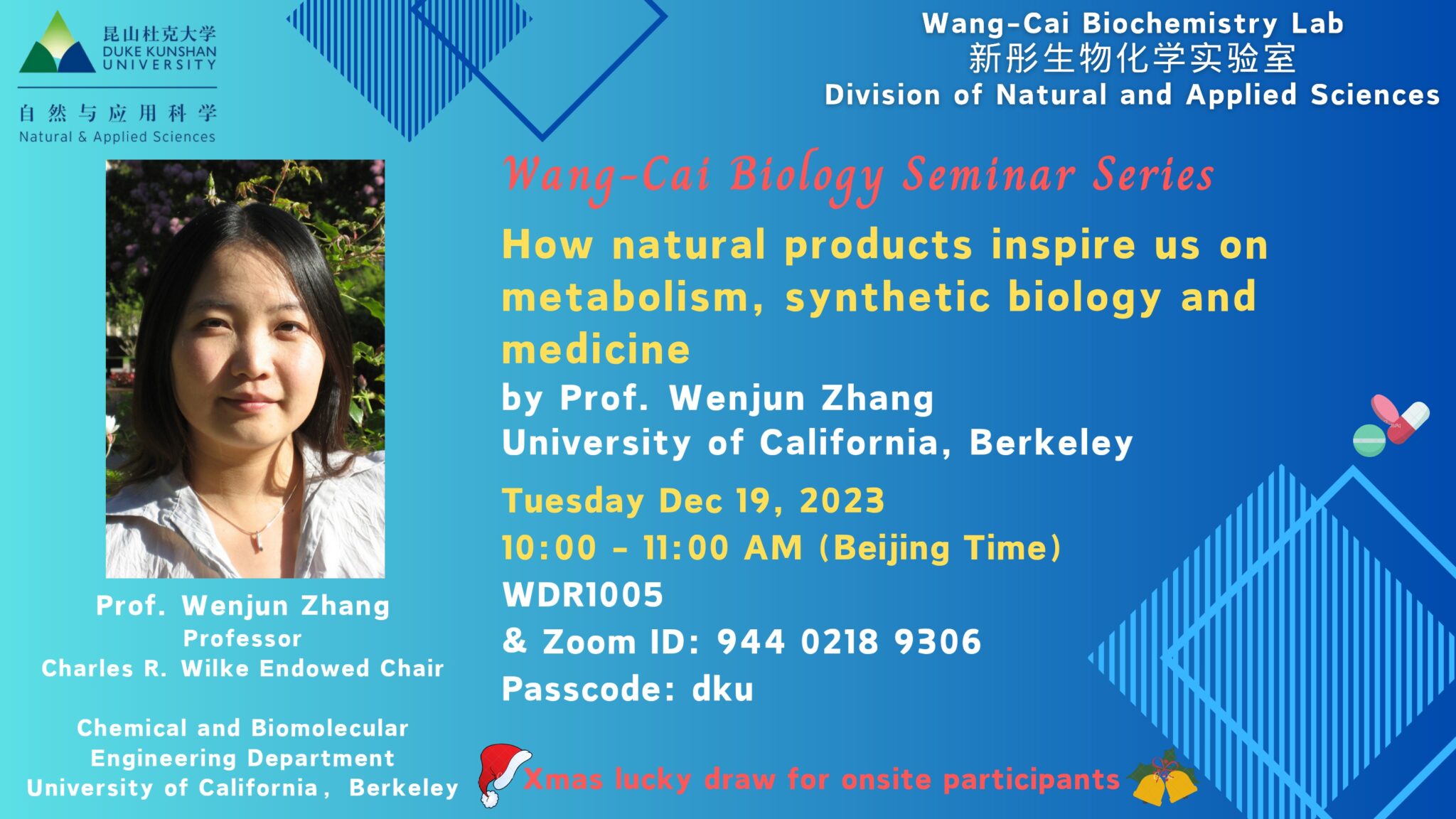Speaker: Prof. Wenjun Zhang
Professor, Charles R. Wilke Endowed Chair
Chemical and Biomolecular Engineering Department
University of California, Berkeley

Date: Tuesday Dec 19, 2023.
Time: 10:00 – 11:00 AM (Beijing Time)
Venue: WDR1005
& Zoom ID: 944 0218 9306
Passcode: dku
Biography:
Wenjun Zhang is the Charles R. Wilke Endowed Chair and Professor in the Department of Chemical and Biomolecular Engineering at University of California Berkeley. She did her doctoral training with Yi Tang at UCLA and her postdoctoral training with Christopher T. Walsh at Harvard Medical School before joining UC Berkeley in 2011. She has received awards such as Pew Scholar, NIH Director’s New Innovator, Sloan Research Fellow, Presidential Early Career Award for Scientists and Engineers, etc. Zhang Lab is broadly interested in natural product discovery, biosynthesis, engineering, and biological studies.
Seminar abstract:
Natural products are important specialized metabolites for studying, treating, and even causing human diseases, and they often have unique functional groups that are critical for their biological activities. By exploiting the biosynthetic machinery by which these functionalities are synthesized, it is possible to enhance, vary or diminish the biological activities of parent compounds and apply the biosynthetic machinery to new systems for functional group installation. We have discovered novel enzymes for generating unique functionalities of natural products, and a recent example on azide biosynthesis will be highlighted in this talk. In addition, microbiome analysis of human oral microbiota has indicated that oral microbes have great potential to synthesize diverse natural products which are correlated with oral health or disease. However, among thousands of predicted oral natural products, less than 1% have been known. This knowledge gap prevents mechanistic study of natural product-mediated chemical communications in these important ecological niches. My lab has been dedicated to the discovery of new oral natural products and their ecological roles and recent examples will be presented.
